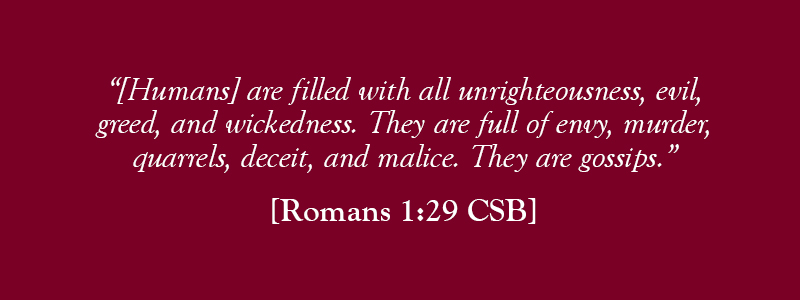|
Gossip
It’s always intriguing when a minor piece of a lesson becomes the main point of discussion. For example, I was recently teaching in 1 Peter, developing a part of chapter 2 where the big idea is to be honorable. As an illustration of how we sink into dishonor, I made a comment regarding gossip. Afterwards, almost all the mail I received had to do with gossip. Something that comprised 2% of the message sparked 95% of the conversations afterwards.
A High School student spoke succinctly to the issue plaguing all. She wrote, “Hi, Pastor Wayne! I would like to know your thoughts on when information becomes gossip. I don’t want to be a part of gossip but am unsure how to differentiate between the two.”
My response
It’s a great question! There seem to be 3 factors that push something over the fine line from helpful information to gossip:
- Intent. If I am trying to warn someone of a potential problem (like a manager with a predatory reputation), I should value the potential victim enough to share the information. Likewise, if a teacher uses a famous person as a negative example, they are not gossiping…unless they have animus toward the celebrity. If your intent is to humbly help others, you are on the information side of the line.
- Factuality. Whether true or not, if I share hearsay as fact, I am gossiping. In the case of the possibly predatory boss, I must declare my lack of personal knowledge and honestly admit this is hearsay.
- Focus. If the focus is on you, you are certainly gossiping. When I have gossiped, I found (sadly after the fact) that I was excited to share salacious information because it made me appear well-informed. If the focus is on you, it’s nearly impossible to stay on the information side of the line.
God bless,
Wayne
